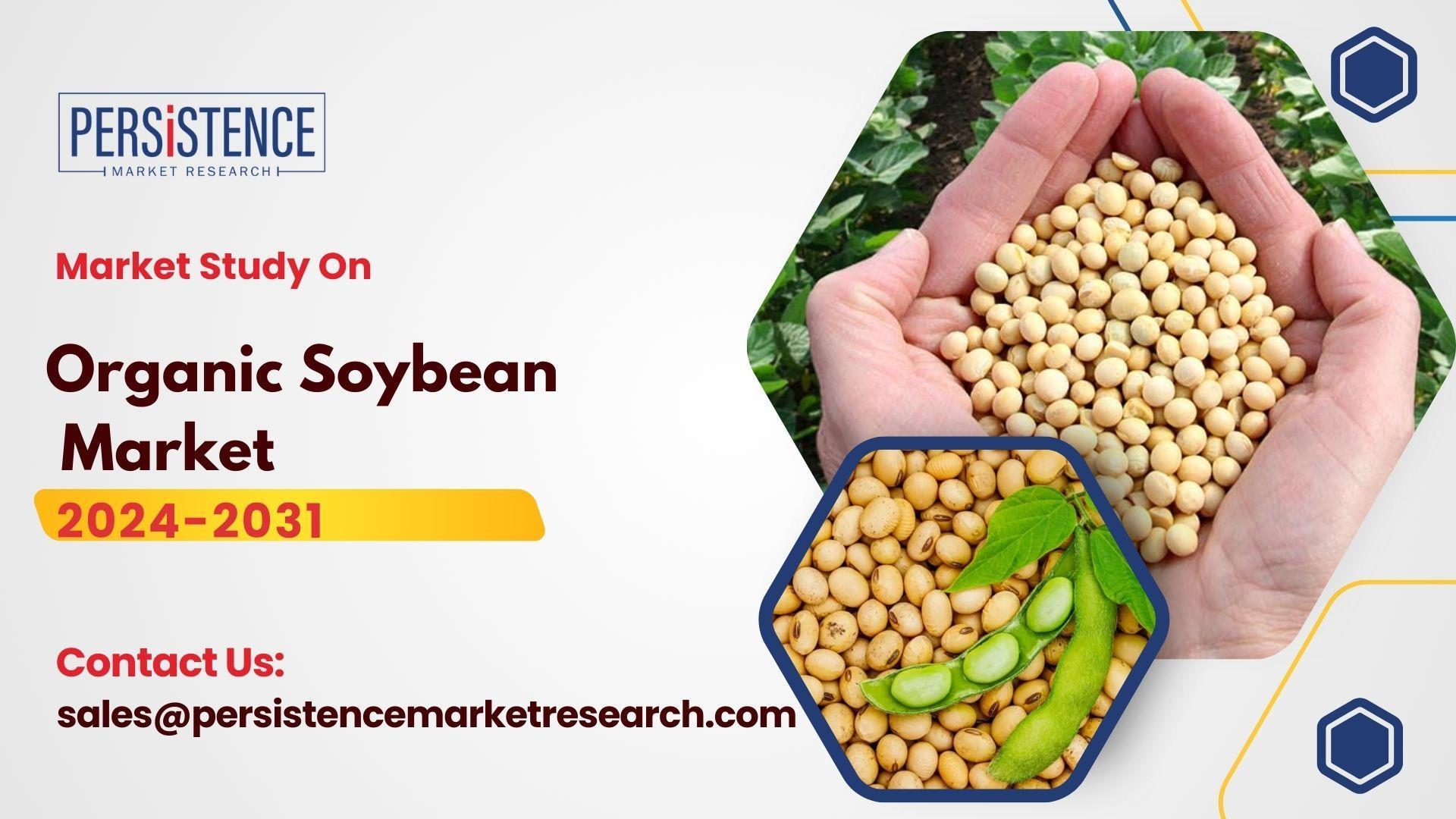How Organic Soybean Market is Transforming the Agriculture Industry
The agriculture industry is undergoing a significant transformation, driven by the growing demand for sustainable and eco-friendly farming practices. One of the key players in this transformation is the organic soybean market.
As consumers become more conscious of the environmental and health impacts of conventional farming, the demand for organic products, particularly soybeans, has surged. On the basis of market segment, the organic soybean market is segmented by application, by end-product, and by distribution channel. Market by application for organic soybean is segmented into food and beverage, personal care and cosmetics, pharmaceutical, animal feed and pet food, and others.

This shift is not just altering the way soybeans are cultivated but is also reshaping the broader agricultural landscape.
��������������������������������- https://www.persistencemarketresearch.com/samples/19831
The Rise of Organic Soybean Farming
In recent years, the organic soybean market has experienced substantial growth. This can be attributed to several factors, including the increasing awareness of the benefits of organic farming, government support for organic agriculture, and the rising consumer demand for non-GMO and chemical-free food products. Organic soybean farming eschews synthetic pesticides, herbicides, and fertilizers, relying instead on natural methods to enhance soil fertility and control pests. This approach not only produces healthier crops but also supports biodiversity and promotes a more balanced ecosystem.
Environmental Impact and Sustainability
One of the most significant ways the organic soybean market is transforming the agriculture industry is through its positive environmental impact. Conventional soybean farming is often associated with soil degradation, water pollution, and the loss of biodiversity due to the heavy use of chemical inputs. In contrast, organic soybean farming practices prioritize soil health and water conservation. By using crop rotation, cover cropping, and organic compost, farmers can improve soil structure, reduce erosion, and increase the soil’s ability to retain water. This not only leads to more resilient crops but also helps mitigate the effects of climate change.
Economic Benefits for Farmers
The shift towards organic soybean farming is also creating new economic opportunities for farmers. Organic soybeans typically command higher prices in the market compared to their conventionally grown counterparts. This price premium can provide a more stable income for farmers, making it an attractive option for those looking to transition to organic farming. Additionally, as the demand for organic soybeans grows, there is a corresponding increase in the demand for organic farming supplies and services, further stimulating the agricultural economy.
Challenges and Opportunities
While the organic soybean market offers numerous benefits, it is not without its challenges. Organic farming requires more labor and knowledge compared to conventional farming, and the transition period from conventional to organic farming can be financially and operationally challenging for farmers. However, the growing demand for organic products, coupled with government incentives and the development of new organic farming technologies, presents significant opportunities for farmers willing to make the switch.
The Future of Organic Soybeans in Agriculture
Looking ahead, the organic soybean market is poised to play an even more critical role in the future of agriculture. As consumers continue to prioritize sustainability and health, the demand for organic soybeans is expected to rise. This will likely lead to further innovations in organic farming practices, making it easier and more cost-effective for farmers to adopt organic methods. Moreover, the organic soybean market is expected to influence other sectors of agriculture, encouraging more widespread adoption of organic practices across different crops and regions.
